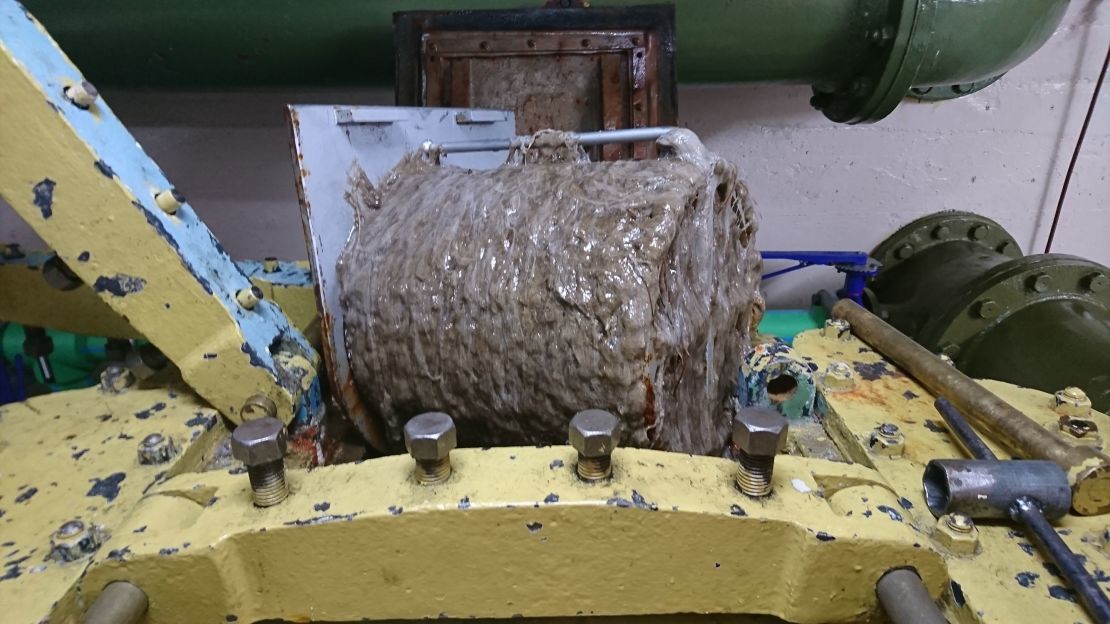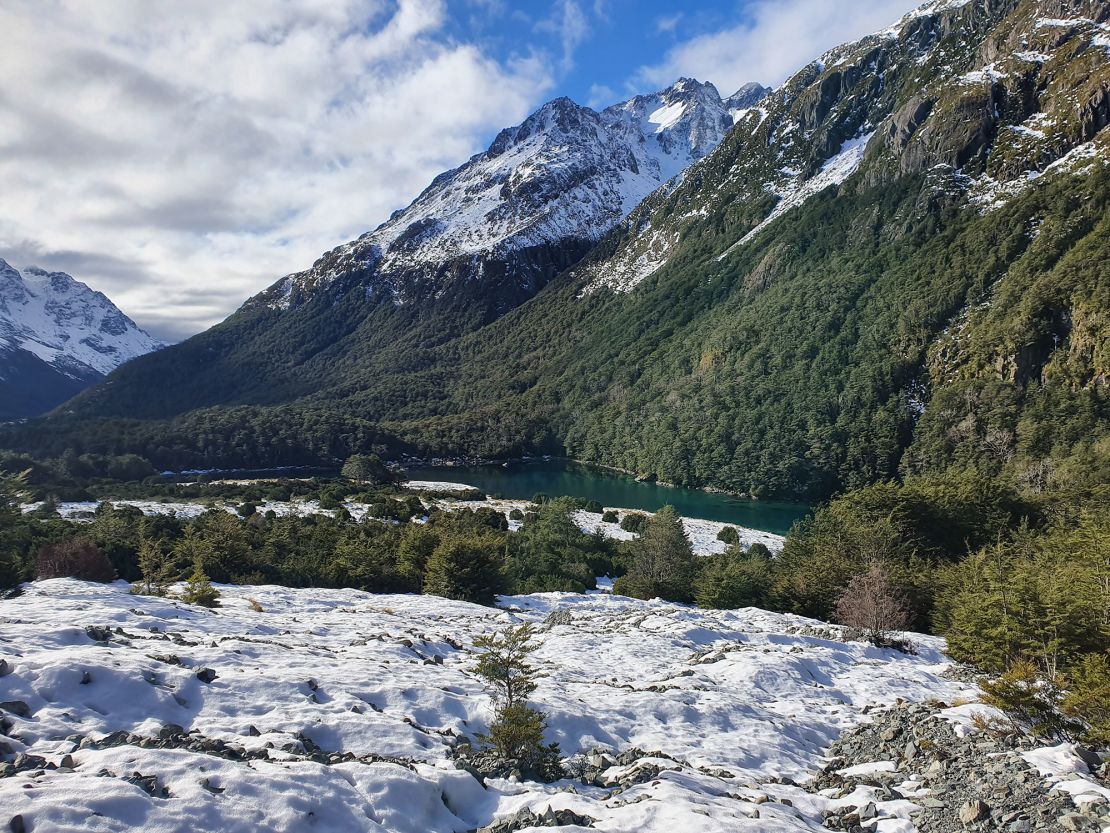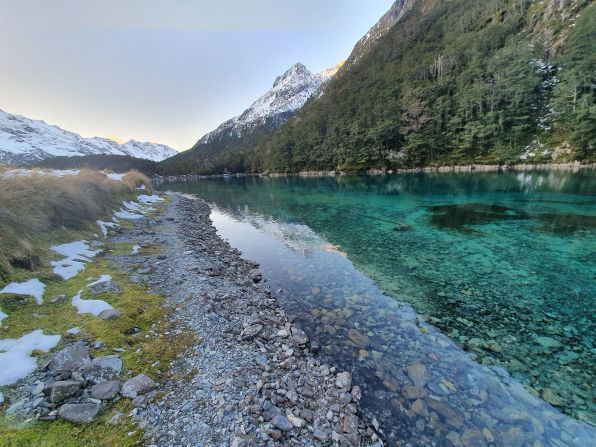Deep within Nelson Lakes National Park, in New Zealand’s South Island, lies a magical blue-violet lake. Surrounded by steep alpine forests and spring-fed from the glacial waters of Lake Constance, it is small but not insignificant.
It was first discovered by Ngāti Apa, a Māori iwi, or tribe, who named it Rotomairewhenua, meaning “the lake of peaceful lands.” It became a sacred place where they cleansed the bones of the dead, believing this would secure the spirit a safe journey to the ancestral Māori homeland of Hawaiki.
In more recent history, hikers passing through the national park have commented on the lake’s extraordinary color and ethereal energy, but it was only around a decade ago that scientists discovered that the water of the sub-alpine lake had “exceptional optical purity” with a visibility of between 70 and 80 meters. That’s in line with that of pure water, which they said made it “the most visually clear freshwater yet reported.”
The title of “clearest lake in the world” and photos of the stunning landscape have since been shared widely on social media, making the lake a popular tourist destination between December and March (during New Zealand’s summer). But conservationists and the Ngāti Apa now fear that this increased popularity could threaten the purity of the lake.
Their biggest concern is the spread of lindavia, a microscopic alga known colloquially as “lake snow” or “lake snot” for the slime it creates that hangs just below the surface of the water. The alga is already present downstream of Rotomairewhenua (also known as Blue Lake) in lakes Rotoiti, Rotoroa and Tennyson, and is at risk of being carried up the trail on hikers’ boots or in their water bottles.
“Lake snot”
An invasive species to New Zealand, lindavia most likely made its way there from North America, possibly via fishing gear, speculates Phil Novis, a senior research scientist specializing in algae at the government-owned environmental institute Landcare Research. The first records of it in the country are in the early 2000s and since then it has spread fairly widely. “Humans are the main vector,” he says, explaining that in previous research his team collected and tested sediment cores from 380 lakes in New Zealand, and the only ones with lindavia present were those easily accessible to humans.
Just one small speck of it could change the ecology of a lake forever, he adds, and it can be carried fairly easily in water droplets. He recalls one instance when he found a sample of lindavia on the chest hair of a man who had swum a couple of kilometers through Lake Wānaka, in the Otago region of New Zealand.

While it is not known to be toxic for humans, the alga excretes long viscous strands known as mucilage that when concentrated can become a nuisance – known to clog up fishing lines, boat filters or hydroelectric power systems. In the case of Rotomairewhenua, the film of slime it creates could obscure the lake’s exceptional clarity.
“We are deeply concerned,” says Jen Skilton, ecologist and Taiao advisor (environmental manager) for Ngāti Apa ki te Rā Tō Trust, a non-profit organization that supports the iwi. “If this invasive microorganism enters the lake, it has the potential to have far-reaching consequences, affecting the water quality and overall health of the lake.”
She adds that this would be devastating for the Ngāti Apa, for whom Rotomairewhenua holds immense cultural and spiritual significance. While they no longer use the lake for ancient rituals, it is a part of their identity, she says: “We maintain a living connection to our ancestral traditions and ensure that Rotomairewhenua is preserved for future generations.”
Protecting its purity
Since 2013, when the research on the lake’s clarity was published, visitor numbers have more than doubled, according to New Zealand’s Department of Conservation, which collects voluntary data provided by hikers at the visitors’ hut near Rotomairewhenua. Most people trek to the lake via two or seven-day circuits, or as part of the Te Araroa long distance trail, which spans the entire length of New Zealand.
The title of “clearest lake in the world” and the resulting social media buzz has definitely contributed to its popularity, says Melissa Griffin, senior biodiversity ranger for Nelson Lakes at the Department of Conservation. “Before then it was a beautiful place that was known, but not many people went there. Then when it got the title, that really started to increase the amount of trampers (hikers) that were going to the lake.”
As a result, the Department of Conservation, Ngāti Apa ki te Rā Tō Trust and Te Araroa Trust, have been working together to introduce biosecurity measures along the route. They have installed cleaning stations beside the lakes where lindavia is present, with educational signs requesting that hikers clean their shoes and gear before traveling on towards Rotomairewhenua, and potentially taking new species with them.

Most of all, through signs and videos broadcast on the Te Araroa trail app, they are urging visitors not to touch the water – be it swimming, wetting a towel to cool down, or dipping in a GoPro to get an underwater shot. This is not only due to the biosecurity risk but also out of respect for the place: “The water of Rotomairewhenua is ‘tapu’ (sacred) and entering the water is a violation of that,” says Skilton.
During the summer, a warden – often someone from the Department of Conservation or a Ngāti Apa representative – stays for an extended period at the lake to watch over and talk to hikers, explaining the biosecurity risks, the lake’s cultural significance, and potential human impact.
So far, there are signs that people are respecting the guidance, and fewer examples of visitors recklessly dipping themselves or a towel in the water after a long and sweaty hike. But surveys show there is still a gap between understanding the risk and being proactive about averting it. Janet Newell, biodiversity ranger for the Department of Conservation, says that while people acknowledge they have read the signs at cleaning stations and understand why they are there, that doesn’t necessarily translate into them using them. There’s a belief that “it’s not me that’s the problem, it’s other people,” she says.
“Opportunity and responsibility”
As Rotomairewhenua is part of a national park, restricting visitor numbers would be difficult, and it’s not a measure the Department of Conservation wants to take. Instead, the message it wants to get out is for people to go and enjoy these pristine environments but consider the wider impact that they are having.
When working as a hut warden, Griffin’s role included picking up rubbish and cleaning the toilets. “The increase in numbers has meant that the number of times we need to empty those toilets is increasing,” she says. “So then you have costs of helicopters, the carbon of getting a helicopter into the backcountry: these are all things to consider when you think about the number of people that are going into the backcountry.”
But at the same time, “You want people to go and enjoy and be able to see it, and sit there and sit with it,” she says, recalling her first visits. “There’s something really special about getting there, standing next to the lake, and it’s just peaceful. You hear lots of birds, but the water is peaceful, and seeing into it is crazy, it’s so stunning.”
In the end it comes down to a fine balance, says Skilton: “The growing number of visitors brings both opportunity and responsibility. It is crucial that all who visit understand the significance of this place and take the necessary steps to minimize their impact.
“By adhering to the rules and guidelines, we can protect the lake’s unique ecological features and safeguard its cultural importance for future generations.”



